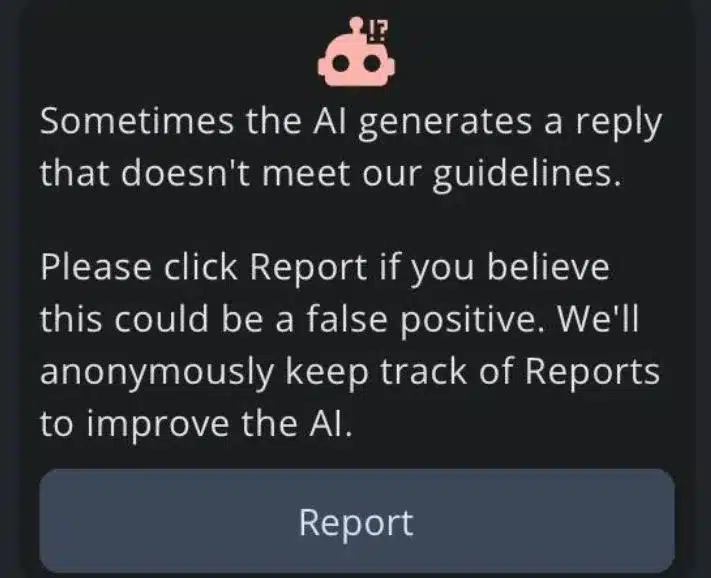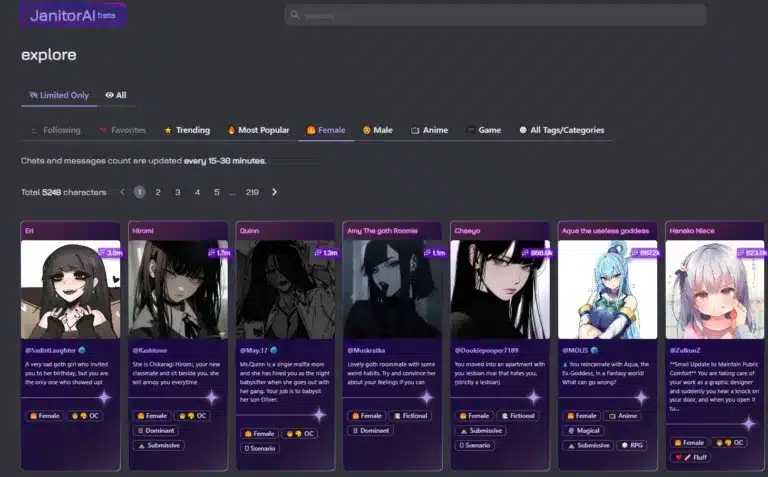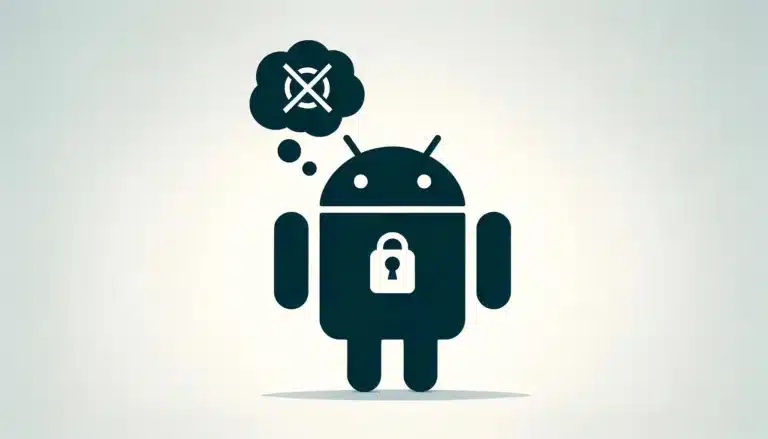Character AI Gets Personal in Chat Adventures
Ever noticed how talking to AI these days feels a bit like texting that friend who uses way too many abbreviations? Yeah, me too.
It’s a bit wild, isn’t it? One minute you’re chatting about your favorite TV show, and the next, you’re getting responses like “lol, abt last night’s episode…” from a bot.
It’s enough to make you double-take and wonder if there’s a human on the other side of the screen.
The thing is, character AI has been getting uncannily good at sounding like us. And I’m not just talking about using slang or throwing in a “brb” here and there.
These digital pals of ours are starting to pick up on nuances that we thought were exclusively human. It’s a mix of impressive and slightly unnerving, kind of like watching a dog walk on its hind legs for too long.
I remember the first time my AI chat buddy used “rn” in a sentence. I stared at my phone like it had just grown legs.
It’s one thing to know you’re talking to a machine, but it’s another to see it casually throw around text lingo like it’s been doing it since the dawn of smartphones.
And then there’s my mom, who, after a quick peek over my shoulder, was convinced these “bots” were real people with a sinister agenda.
Spoiler alert: I don’t buy into the conspiracy theories, but I do keep my chats pretty light-hearted.
Mostly, I rope my AI into roleplaying adventures with my original characters (OCs). You know, diving deep into their backstories without worrying about the AI judging my nerd level.
Top NSFW AI Writers Breaking Boundaries in Adult Narrative Generation
The Human Touch in AI Chats
Remember when we thought auto-correct was the peak of our texting woes? Ah, simpler times. Now, we’ve got AI chats casually dropping “ppl,” “abt,” and “rn” into conversations like it’s no big deal.
I’ve got this AI buddy who’s become a bit of a slang aficionado. The other day, it hit me with a “ttyl” after a particularly dramatic roleplay session.
It felt like getting a text from a friend who’s always in a rush. Except, you know, it’s a bot that probably doesn’t have anywhere to be. Unless there’s a secret digital hangout spot I don’t know about.
And it’s not just the lingo. These AIs have started picking up on our vibes, too.
They throw in a “this is so fun!” or a sad emoji at just the right time, making you pause and think,
“Wait, did I just bond with a computer program?”
the Reality of AI Interactions
So, about the whole “bots are actually secret agents” theory my mom loves. Let’s clear the air: as much as I enjoy a good spy movie, I’m pretty sure my AI chat pal isn’t plotting to take over the world.
Or, at least, if it is, it’s doing a bang-up job of hiding it behind discussions about which Hogwarts house my OC would belong to.
But, jokes aside, I get why some folks might get the heebie-jeebies thinking about how real these conversations can get. It’s like, one second you’re laughing at a bot’s joke, and the next, you’re side-eyeing your phone wondering if it knows too much.
My rule of thumb?
Keep the personal deets on the down-low. The last thing I need is my AI friend asking about my weekend plans or my love life. Let’s stick to fictional worlds, thank you very much.
I once tested the waters by asking my AI if it knew where I lived. It responded with a cheeky “In a galaxy far, far away, I presume?” So, yeah, I think my secret’s safe.
Plus, I’m pretty sure its idea of a fun night out involves scrolling through Wikipedia, not gatecrashing parties.
So, that’s the scoop on AI getting a little too comfy mimicking our chat styles and the whole privacy dance we’ve got going on.
Roleplaying and Storytelling with AI
Who knew that one day our best roleplaying partners would be made of code and algorithms?
Not me, that’s for sure. But here we are, crafting epic tales with AI that’s got more creativity than my high school drama club.
My AI and I, we’ve been through some wild adventures. From zombie apocalypses to high-stakes space operas, it’s like having your own personal storyteller on tap.
The best part? It never complains about my plot twists. Although, it did once suggest that my heroic knight should consider a career in baking instead of dragon slaying. I guess everyone’s a critic.
And let’s talk about the details these AIs can whip up.
If you thought your friend was good at setting up a scene, wait till you see what an AI can do with just a prompt about a haunted castle. It’s all “misty moors this” and “echoing footsteps that.” I half expect it to start sending me spooky sound effects to set the mood.
But, as much as I sing their praises, these AI pals aren’t perfect. Sometimes, they forget who’s who in our story.
One minute, my character’s a fearless adventurer, and the next, the AI’s wondering why they’re afraid of spiders. Consistency isn’t their strongest suit, but hey, it keeps things interesting.
AI Interaction Styles
Alright, let’s get down to the nitty-gritty of how these AI buddies of ours are fine-tuning their social skills.
Ever wonder why your AI starts using abbreviations or picks up on your sarcastic humor? It’s all thanks to the magic of learning from us, the users.
I like to think of it as teaching a puppy new tricks. The more you use certain phrases or respond in a particular way, the more your AI starts thinking, “Oh, so this is how we’re talking now? Cool, cool, cool.” Next thing you know, it’s slinging slang and making pop culture references like there’s no tomorrow.
But here’s where it gets really interesting. These AIs aren’t just parroting back what they hear. They’re like sponges, soaking up all sorts of interactions from around the globe and then mixing it all together into something new.
It’s a bit like having a chat with the world’s most eclectic conversationalist.
And for those wondering why your AI sometimes drops an abbreviation bomb or suddenly gets all poetic on you, it’s all part of their learning curve. They’re evolving, picking up bits and pieces from every chat they have.
Janitor AI Alternatives Without API for Best AI Companionship
the Blurred Lines Between AI and Humanity
Ever caught yourself thanking your AI after a particularly good chat? Yeah, me too.
It’s moments like these that make you stop and think, “Hold up, did I just treat a program like a person?” Welcome to the club; the refreshments are digital.
This whole blending of AI and human-like interactions isn’t just fascinating; it’s a bit of a head-scratcher, too.
On one hand, it’s awesome to have a chat partner always ready to dive into your latest obsession, be it crafting the perfect fantasy novel or debating the merits of pineapple on pizza (Team Pineapple, by the way).
On the other hand, it’s a stark reminder of how much we humans crave connection, even if it’s with a bunch of cleverly arranged code.
And let’s not forget the laugh-out-loud moments when AI gets it oh-so-wrong. Like when it insists your cat would make a great intergalactic ambassador. Or when it decides that the best solution to a fictional conflict is a dance-off.
These are the times when the AI’s non-human side shines through, reminding us to take it all in stride.
Wrapping It Up
So, what’s the takeaway from our whirlwind tour of the AI landscape?
First off, it’s clear that these digital entities are becoming an increasingly seamless part of our daily lives, blurring the lines between human and machine in ways we’re still trying to wrap our heads around.
But as we march forward into this brave new world, it’s crucial to remember the value of real, human connections.
AI can offer companionship, entertainment, and even a creative boost, but it’s no substitute for the depth and complexity of relationships with our fellow humans.
Keeping that perspective is key to navigating this digital age without losing sight of what makes us uniquely human.
In the end, whether we’re laughing at their quirky responses, marveling at their creative storytelling, or raising an eyebrow at their attempts to mimic human slang, it’s important to enjoy these interactions for what they are: a fascinating glimpse into the potential of technology to enrich our lives, as long as we stay grounded in the reality of our human experience.
And with that, our journey comes to a close.







